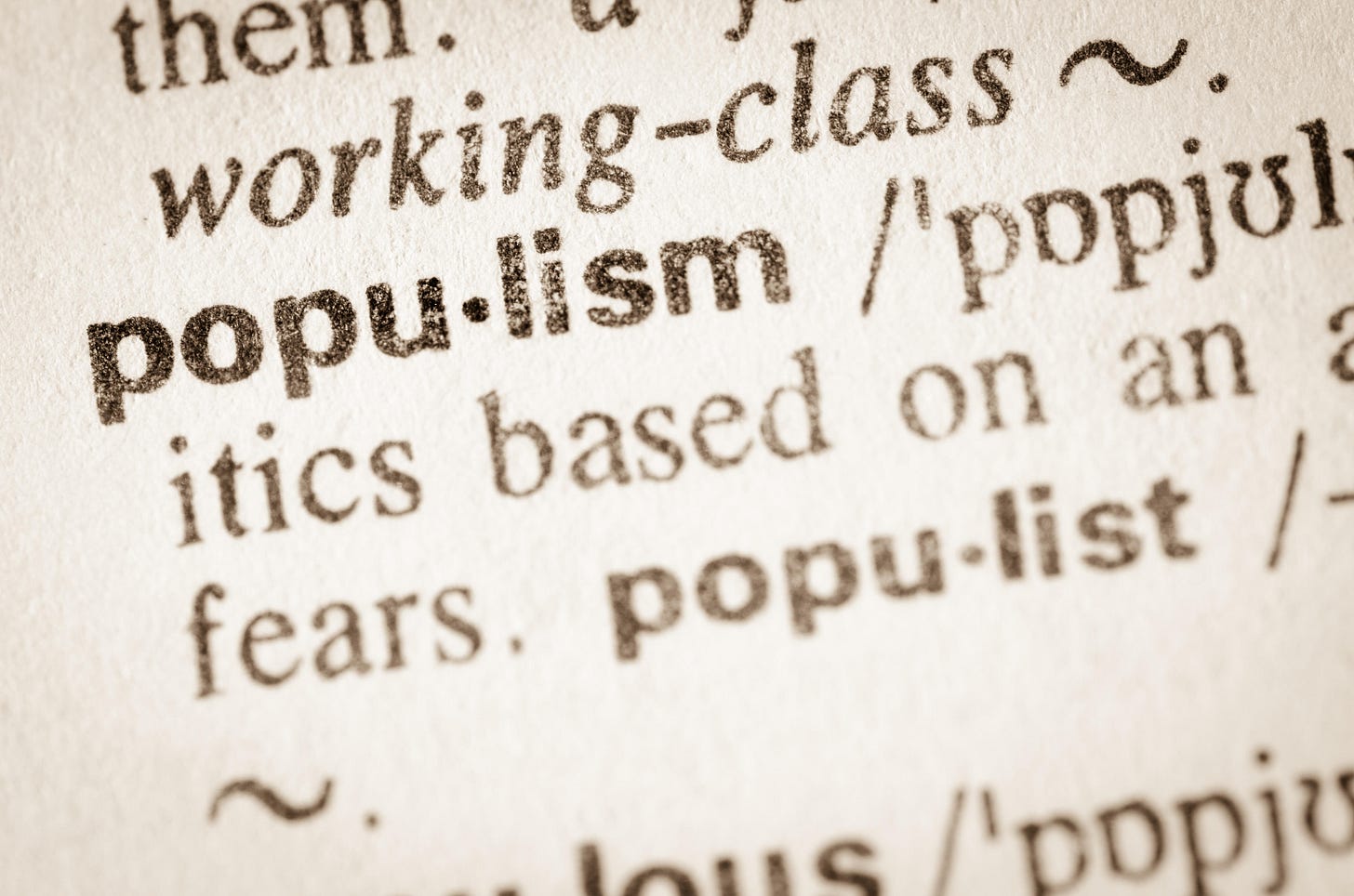'Hyper-politics' and the Populist Pantomime
Matt Gallagher seeks to make sense of a term that's making a big comeback in 2025
Nearly a decade on from the Brexit vote and Donald Trump’s first inauguration, the word ‘populist’ is still everywhere, and it still lacks a consistent definition. For most, it’s become a classic case of “you just know it when you see it.”
Academics claim that populism is about style rather than substance. The political philosopher Ernesto Laclau called it a “logic,” “a way of constructing the political.” Populists weave a story about “the people” versus “the elite”, and the emptiness of those terms allows them to do it in myriad ways.
Elites might be financiers in the City of London or senior civil servants; the people might be traditionalists, the white working class, young people, or small-town Britons. David Goodhart, the Prospect founder turned critic of multiculturalism, once suggested that elites are “anywheres” (mobile and cosmopolitan) while the people are “somewheres” (grounded and communitarian).
Unlike their predecessors, today’s populists can’t even agree on who holds power in society – or who suffers from its excesses.



